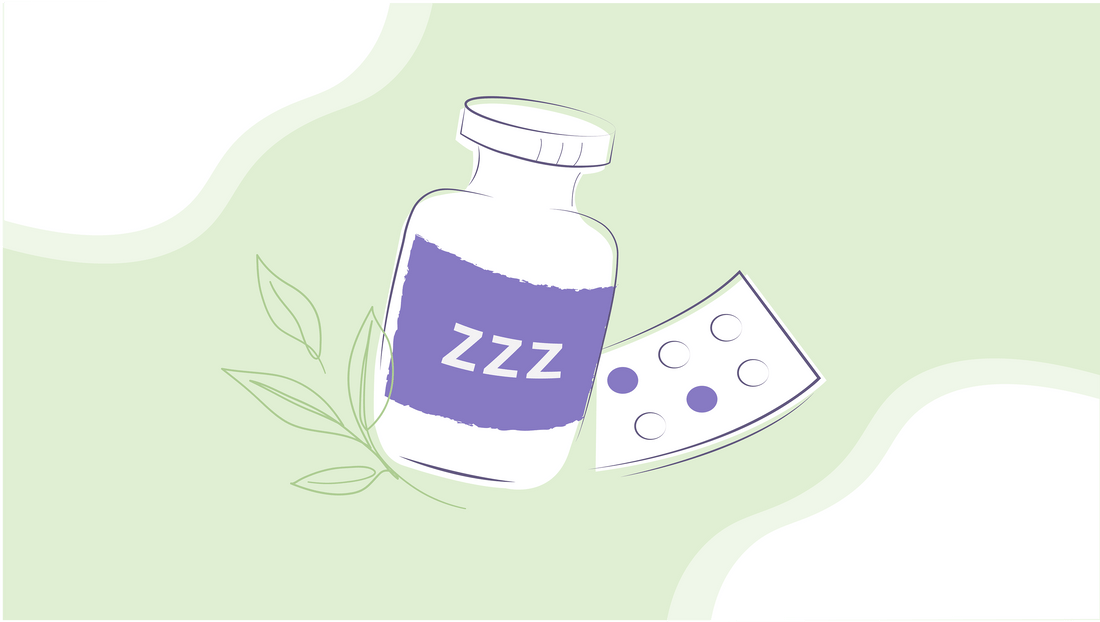We all know how important it is to get enough sleep—it’s what allows us to rest and recover after a long day.
But did you know that there are two hormones that have a big impact on whether you sleep well?
Cortisol helps you get up and go—it's what kick starts your motivation when you need to be productive. But it’s also the key chemical involved in our fight-or-flight response and the main hormone that makes us feel stressed.
Melatonin, on the other hand, regulates your sleep. It's produced by a tiny part of the brain called the pineal gland at night when the brain receives signals from the body that it's time for you to fall asleep.
They may sound like two completely different chemicals, but they both share a really important role: Together, they regulate your circadian rhythm—your body's natural cycle of sleeping and waking up.
When it's time to sleep, your cortisol levels should be low, and your melatonin should be high. If you’re having problems falling asleep, you could have an imbalance of these hormones…
Are Your Cortisol Levels out of Balance?
Aside from sleeping problems like insomnia, there are other symptoms of cortisol-melatonin imbalances, and these are usually pretty easy to spot:
- racing thoughts and an inability to focus
- feeling overwhelmed by small tasks
- being easily irritated or upset
- changes in appetite—either overeating or not wanting much of anything at all
- weight gain or weight loss
Your Sleep Hormone Hero
While your cortisol levels might have your mind in overdrive, melatonin is still in the background trying to send the sleep-regulating signals it should be sending to your brain.
But sometimes, this hero-turned-underdog isn’t able to break through the fight-or-flight messages your brain is getting from cortisol. If you’re still in fight-or-flight mode, your melatonin levels won’t get higher than your cortisol levels. This is why you can’t sleep when your cortisol levels spike.
But how do you safely support this sleep hormone hero so it can win its nightly battle?
One way is by exercising regularly, but it needs to be something intense enough to cause an increase in your heartbeat, like running or swimming.
Another way is to take over-the-counter melatonin supplements at night.
However, it’s important to note that melatonin can be difficult to take correctly…
First of all, melatonin doesn’t make you sleepy; it only regulates your sleep. So if you take it to initiate sleep, you're using it incorrectly.
You have to take it at the right time and in a very specific amount, and most over-the-counter melatonin products that you find at dollar stores or drug stores actually don’t have the amount of melatonin listed on their containers
Plus, melatonin has a really short half-life, meaning it's not effective for long periods of time. So if your cortisol remains high throughout the night, you’ll likely wake up when your melatonin levels return to their low levels.
So when does melatonin work best to help you get a better night's sleep? It works best when it's paired in the right ratio with other all-natural ingredients.
The Safe and Effective Solution
Looking for an easier and more reliable way to take melatonin?
SleepPak is a new kind of sleep aid. Its perfect blend of all-natural ingredients was formulated by scientists to work in harmony, bringing you deep, restorative sleep.
SleepPak slowly releases steady levels of melatonin during the night, mimicking the natural release of this hormone in our bodies as we drift off to sleep.
And you’ll never have to worry about your sleep supplements losing their potency because you opened the package… SleepPak’s individual pouches protect each dose from the formulaic degradation that happens when pills are exposed to air.
With SleepPak, you’ll fall asleep faster, stay asleep longer, and wake up feeling refreshed.



